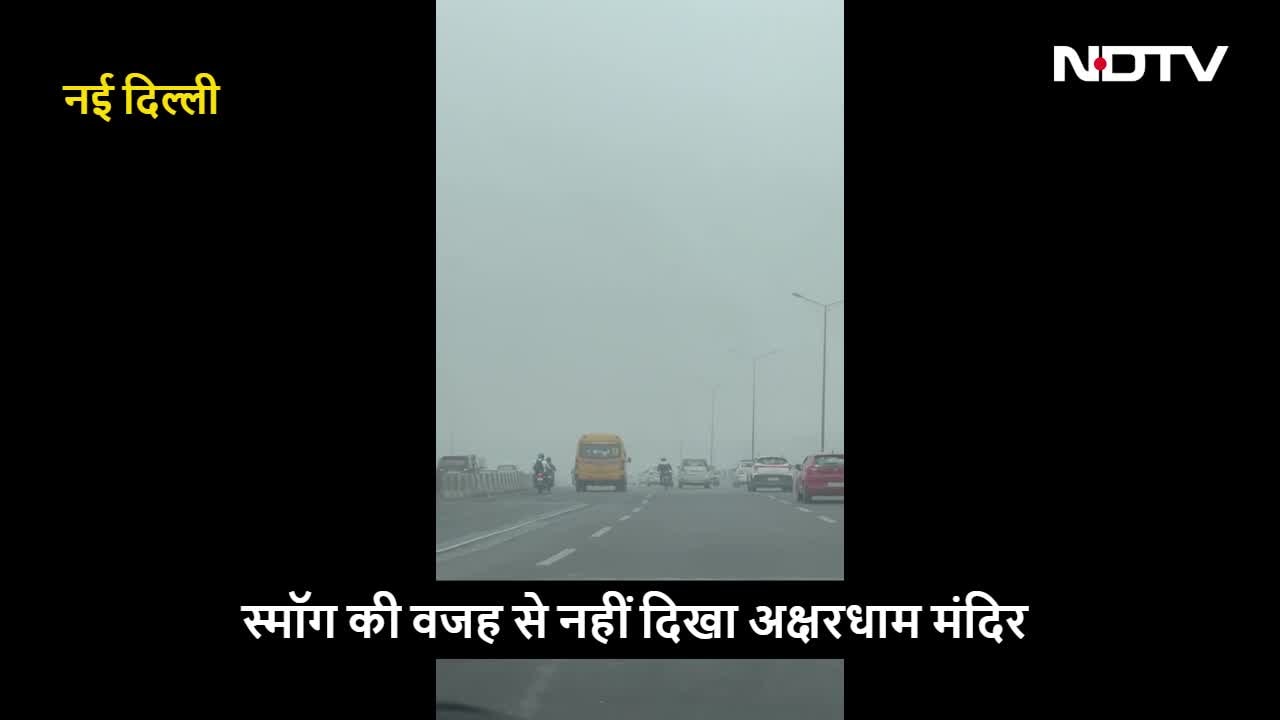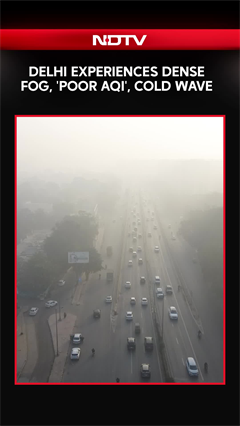- Home/
- "No Diesel Generators, Increase Parking Fees": Air Quality Panel On Delhi
"No Diesel Generators, Increase Parking Fees": Air Quality Panel On Delhi

Use of diesel generators in Delhi must stop (except for emergencies), parking fees must be increased by three-four times, and burning of coal and firewood cannot be allowed at hotels and open-air eateries, the Central Pollution Control Board said in an order issued Saturday evening.
The CPCB's subcommittee on air quality management (CAQM) also called for action against the burning of garbage at landfills, and said the government must ensure the closure of all brick kilns, hot mix plants (making asphalt mix for road-laying) and stone crusher plants in Delhi NCR.
The CAQM also called for an uninterrupted supply of electricity - so people don't use generators.
The above point was underlined by calling for maximum power production from natural gas plants, and a reduction in numbers of operating coal-based power plants that add to pollution levels.
The government has also been urged improve frequency of public transport services like buses and metros in the national capital region, with "differential rates to encourage off-peak travel".
The CAQM also underlined the need for states and concerned agencies to be in "complete readiness for implementing 'emergency measures' as listed under GRAP (the graded action plan notified by the centre after a 2016 Supreme Court order) at short notice".
"GRAP provides specific actions depending on air pollution, which are to be implemented by identified agencies for minimizing the pollution, particularly during critical winter season," the CAQM order said.
Earlier, sources said the next four-five days would be crucial in the national capital region's fight against the blanket of toxic smog that has covered the city since Diwali last week.
The order came minutes after Chief Minister Arvind Kejriwal said schools across Delhi would be shut for a week starting Monday, "so children don't have to breathe polluted air".
His announcement came hours after the Supreme Court hit out at the air quality crisis.
"You see how bad the situation is.... even in our houses, we are wearing masks," Chief Justice NV Ramana said as he asked both the centre and the Delhi government a series of tough questions, including if a two-day lockdown was among the emergency measures being considered.
Breathing the Delhi air is "like smoking 20 cigarettes a day," the state government admitted in the court, stressing, "We agree to the gravity of the situation."
The court tasked both sides with working together to solve the AQI crisis, which includes controlling pollutants from farm fires in neighbouring states. According to the SAFAR (System of Air Quality and Weather Forecasting And Research), today farm fires contributed 36 per cent to PM2.5 levels.
Delhi and surrounding areas, including Gurgaon, Noida, and Ghaziabad, have been choking under a deadly blanket of polluted air for over seven days now - beginning with Diwali last week.
Before, during and after Diwali thousands burst firecrackers in violation of orders by the Delhi, Haryana, and UP governments, contributing greatly to the shocking deterioration of air quality.
According to the Central Pollution Control Board, at 7 pm the AQI in Delhi was 417. The AQI in Noida, Gurgaon, and Ghaziabad was 445 (390 in Greater Noida), 415 and 430, respectively.
AQI readings over 400 are considered 'severe', with high concentrations of PM2.5 particles and these can cause cardiovascular and respiratory diseases such as lung cancer.
also read
1 In 7 Stroke Patients In India Are Under 45: Alarming National Registry Data
Written by Shreya GoswamiRujuta Diwekar Debunks Heart Health Myths, Warns Against Alcohol And Urban Lifestyle Risks
Edited by Debosmita GhoshAir Pollution Increases Risk Of Alzheimer Disease, Finds New Study
Press Trust of India
Latest Stories
- Written by Shreya Goswami | Wednesday February 25, 2026
A new National Stroke Registry analysis reveals nearly 14 % of stroke patients in India are under 45, a demographic once considered low risk.
- Edited by Debosmita Ghosh | Saturday February 21, 2026
Nutritionist Rujuta Diwekar addresses common myths about heart health and advises people not to fear traditional foods like coconut, peanuts and cashews.
- Press Trust of India | Wednesday February 18, 2026 , New Delhi
Longterm air pollution exposure raises Alzheimer's risk directly, major US study finds, highlighting urgent need to protect brain health in older adults.
- Written by Kusumika Das | Thursday February 12, 2026
Kunal Kapoor shared a quirky list titled 'Survival kit for Indian cities,' imagining engineering-led solutions that could make everyday life more manageable
- Reported by Ankita Tiwari | Tuesday February 10, 2026 , New Delhi
Delhi's struggle for basic essentials - clean water and clean air - is decades old. Today, the national capital is once again attempting to reclaim some breathable space.
................................ Advertisement ................................
Latest Videos
Opinion
Blog | Well Done, Delhi. You've Turned Lung Sacrifice Into A Badge Of HonourSaikat Kumar Bose
Monday November 10, 2025Till some years back, Delhiites would ask angry questions to those in power about the capitals annual tryst with toxic air. This has changed. Those in the driving seat dont see the need to answer now.
Opinion | Why Indians Have Just Given Up On Air Pollution CrisisTanushree Ganguly
Friday December 20, 2024While some may argue that people in Delhi are now more aware of air pollution than they were a decade back, my rebuttal would be that awareness does not mean that people are concerned.
Opinion | You Must Outrage Over Filthy Air More Than Once A YearJyoti Pande Lavakare
Tuesday December 10, 2024Delhi welcomed us with monsoon rains and mangos. We were home. Fast forward a couple of years, in the winter of 2012, I found myself in denial about something other parents, mostly expats, were calling toxic air.
Opinion | Delhi's Air Pollution Situation Is Like A Bad MarriageNishtha Gautam
Friday November 22, 2024On a good day, such as today, the AQI reading in Delhi is 407. We are jubilant at the sickly sunshine trickling through the slightly dissipated smog. At least its not 1600.
दिवाली... पराली... सियासी जुगाली!Ashwini kumar
Monday November 18, 2024दिल्ली-एनसीआर में प्रदूषण का समाधान तो आज तक मिला नहीं. हर साल चिंतित होकर हम-आप सांसों की तकलीफ के साथ-साथ दिल और ब्लड प्रेशर के मरीज भी क्यों बनें?


















